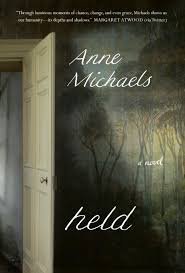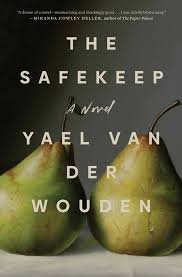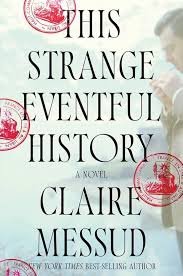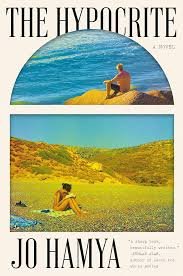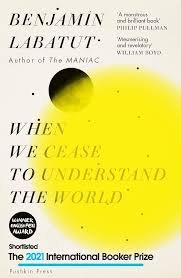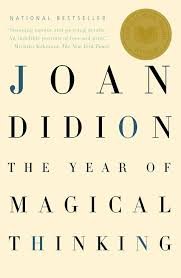August Reading Recap
Hello, fellow book lovers! Most of this month’s books were either off of the NYT Best Books of the 21st Century List (I’m trying to make my way through some off the list; follow along) or from the Booker Prize’s Longlist. It was a mixed bag. Some I thought were great, and others I think you should avoid. Hope this helps. Until next time, happy reading!
State of Paradise by Laura van den Berg
Quick Synopsis: After moving back to take care of her mother, the narrator discovers that the VR headsets the state handed out during the pandemic are taking over the lives of their users, specifically her sister, with many people disappearing while using them. After her sister goes missing, she sets off to investigate how the VR sets are controlling their users.
Strong Points: While I didn’t hate this book, there isn’t much to report on for its strong points.
Weak Points: It fell flat, and the tone felt off. I never had the desire to know the mystery of these headsets and what was happening to their users. I’m not sure if the characters weren’t developed enough to make me care about them or if there wasn’t enough of a stake to pull me into the story.
It’s one of those novels where I’d say, “Oh yeah, I think I read that one, but I’m not sure.” To sum it up in one word: forgettable.
Writing Style: 2/5
Characters: 2/5
Plot: 2/5
Flow/Pacing: 3/5
Overall Rating: 2/5
Not Recommend
For Fans of: Banal Nightmare by Halle Butler, Hum by Helen Phillips, Liars by Sarah Manguso
Once Upon a Time: The Captivating Life of Carolyn Bessette-Kennedy by Elizabeth Beller
Quick Synopsis: The enchanting life of Carolyn Bessette-Kennedy, from her upbringing to her fatal plane ride in 1999.
Strong Points: I’ve always been fascinated by Carolyn. She seemed so glamorous and effortlessly cool. This book dives into her life and the person she was by interviewing her friends, family, and acquaintances. It was hard not to see the parallels between her life and Princess Diana’s life. The constant stalking of paparazzi, the slander in the tabloids about not being good enough for JFK Jr., the in-laws she didn’t quite fit in with, and the spotlight taking a toll on her mental health. It made me wonder what she would have grown up to be had she been alive today. Having not known much about her before the book, I found her life and this book utterly fascinating. The writing itself was great. I’d read something by this author in the future.
Weak Points: Few people that were interviewed clearly didn't want to speak ill of her, and it showed with the constant “she was so beautiful” every two pages. I’m not sure if she had a lousy personality and everyone wanted to focus on something positive, such as her looks, or if she really was the most stunning person to have ever lived. While I think the interviews gave the book more of a personal look at Carolyn’s life, I’m not sure how much others really added to the story.
Writing Style: 4.5/5
Plot: 4/5
Flow/Pacing: 4/5
Overall Rating: 4/5
Recommend
For Fans of: Ask Not by Maureen Callahan, The Friday Afternoon Club by Griffin Dunne, and What Remains by Carole Radziwill
Stay True by Hua Hsu
On the NYT Best Books of the 21st Century List
Quick Synopsis: The story of a friendship that shaped Hsu into the person he is today and the traumatic loss of losing that friend to a carjacking incident.
Strong/Weak Points: This won the Pulitzer Prize last year and also is number 58 on the New York Times' Best Books of the 21st Century list, and I can confirm, it does indeed deserve all the praise. While the subject matter wasn’t completely captivating, the writing was. You can tell the author put a lot of thought into every word he put down on the page. It makes you want to savor every sentence. It’s short and sweet and doesn’t overstay its welcome.
There isn’t much to discuss with this one, but I highly recommend it.
Writing Style: 5/5
Characters: 5/5
Plot: 4/5
Flow/Pacing: 5/5
Overall Rating: 4.5/5
Highly Recommend
For fans of: Stranger to Ourselves by Rachel Aviv, Bliss Montage by Ling Ma, Grief is for People by Sloane Crosley
Held by Anne Michaels
On the Booker Prize’s Longlist
Quick Synopsis: In 1917, after a blast on the battlefield injures John, he looks back at different parts of his life.
Strong/Weak Points: The author is a poet, and it definitely read like one long poem, which I didn’t necessarily hate.
However, it almost felt too fragmented at times, jumping from the past to the present and back again in random order, and way too quickly, leaving smaller scenes that don’t string together. It was hard to follow the story and what time period John was in. It was pretty short at 240 pages, so I wasn’t having a miserable time. Michaels does have beautiful prose.
I can’t see it winning or even making the shortlist, but I can see why it deserves a spot on the longlist. There’s a certain emotion that is provoked throughout about going from one stage of your life to another and finding purpose in all of it that’s really beautiful.
Overall, beautiful, lyrical writing, but poor storytelling.
Writing Style: 3/5
Characters: 2/5
Plot: 1/5
Flow/Pacing: 2/5
Overall Rating: 3/5
Recommend (for the writing)
For fans of: My Friends by Hisham Matar, The Adversary by Michael Crummey, and Parade by Rachel Cusk
The Safekeep by Yael van der Wouden
On the Booker Prize’s Longlist
Quick Synopsis: Isabel lives alone in her childhood home after her mom’s passing. She lives a quiet life ruled by routine and structure. That is until Isabel’s brother leaves town for work and has his girlfriend Eva come to live with her.
Strong Points: This was a bit of a wild ride. I started this with no idea of what the story was about, and it unraveled quite quickly, going places I didn't expect. I ate it up! I don’t want to say much more, but I encourage you to go into it without reading much about it. I get the hype.
This was also longlisted for the Booker Prize, and I can completely see why. I kept forgetting that this is the author’s first novel. I can’t wait to read whatever comes next.
Weak Points: At first, I have to say, it took me a little bit to get into it. It was a little slow setting up the story, but once it was set up, it took off.
Writing Style: 5/5
Plot: 5/5
Flow/Pacing: 4.5/5
Overall Rating: 4.5/5
Highly Recommend
For Fans of: Whale Fall by Elizabeth O’Connor, The Coast Road by Alan Murrin, and All Fours by Miranda July
This Strange Eventful History by Claire Messud
On the Booker Prize’s Longlist
Quick Synopsis: Spanning from the 1940s to 2010, this story follows a family that was separated during WWII and separated again when the children grow up and start their own lives.
Strong Points: I liked the closure you get with some of the side characters. Like “he didn’t know that in three years Mark would pass away from the same cancer that struck Lou” sprinkled throughout the chapters. The author didn’t leave the reader with any loose strings. I appreciate that.
Weak Points: This was longlisted for the Booker Prize, which surprised me after reading it. It didn’t feel like it earned its spot. Some of the characters weren’t as developed and fell flat. It seemed like some of the characters came more naturally to the author to write, and others she struggled to develop.
While it tells a story, the reader doesn’t get a firsthand look at the life-changing events that are taking place in each time period. Instead, we are left to observe the aftereffects and how the characters are reacting to them. It’s an interesting way to tell the story, but it didn’t work for me. I don’t want to read about the rehashing of the event; I want to see the character’s reactions and emotions firsthand.
Also, it’s a huge pet peeve of mine when an author tries to force the title into the story in unnatural ways. This kept happening in the last 50 pages. It felt forced and unnatural.
Overall, good, not great.
Writing Style: 3/5
Characters: 2/5
Plot: 3/5
Flow/Pacing: 3/5
Overall Rating: 3/5
Eh, Recommend
For Fans of: Long Island Compromise by Taffy Brodesser-Akner, Long Island by Colm Tóibín, The Road to the Country by Chigozie Obioma
The Hypocrite by Jo Hamya
Quick Synopsis: Growing up, Sophia, a playwright, had a complicated relationship with her dad. She writes a play about a tumultuous vacation in Sicily that they had together. Her father attends the play, and she awaits his reaction to her harsh retelling.
Strong Points: The story was told through both Sophia and her father’s perspective. I like that it left the reader questioning which perspective was more accurate, or if there was a more accurate one at all. We all experience a situation in different ways; it’s subjective.
Weak Points: What a slog of a book. I was so bored. After finishing the book, I thought, “What was the point of that story?”.
Another pet peeve of mine is when authors try to get cute with their formatting without it serving any purpose to the story. There would be whole chapters in parathesis, misunderstanding would be spelled “mis-understanding” and benefits as “bene-fits”, and there were no quotation marks. Again, it didn’t add anything to the story, it was distracting and annoyed the hell out of me.
Writing Style: 2/5
Characters: 2/5
Plot: 3/5
Flow/Pacing: 1/5
Overall Rating: 2/5
Not Recommend
For Fans of: Liars by Sarah Manguso, Someone Like Us by Dinaw Mengestu, and Headshot by Rita Bullwinkel
When We Cease to Understand the World by Benjamin Labatut
On the NYT Best Books of the 21st Century List
Quick Synopsis: A fictionalized look at the lives of Fritz Haber, Alexander Grothendieck, Werner Heisenberg, and Erwin Schrödinger and the consequences of their discoveries.
Strong/Weak Points: This is a tricky book to review.
Labatut blurred the lines between fiction and nonfiction, which I didn’t love. I couldn't get into the swing of it. The first chapter is mostly fact, and I was all in. His writing is beautiful, and I was learning a lot, but then he starts to fictionalize their lives, focusing on their insanity. For the same reason I’m not the biggest fan of historical fiction, I don’t like when I can’t tell if something is fact or fiction.
However, I really liked the main theme of diving into how mankind has always searched for more knowledge, and sometimes that’s used to better us and sometimes, unfortunately, it’s used to destroy us.
I know the genius yet tormented soul has been done to death, but Labatut does it in such an eloquent and different way that I think it's worth the read.
Writing Style: 4/5
Plot: 4/5
Flow/Pacing: 4/5
Overall Rating: 4/5
Recommend
For Fans of: The Rigor of Angels by William Egginton, Trust by Hernan Diaz, and You Dreamed of Empires by Álvaro Enrigue
The Year of Magical Thinking by Joan Didion
On the NYT Best Books of the 21st Century List
Quick Synopsis: After arriving home from visiting their daughter in the hospital who is in the ICU in a medically induced coma, her husband suffers a headache and dies in their living room. Didion chronicles her very personal grieving process.
Strong/Weak Points: I will start out this review by saying who am I to judge someone’s very, very personal grieving process. However, if I’m going to review this honestly, then I have to poke some holes in this book. Admittedly, this was my first Didion book. People rave about her, and she was quite the literary celebrity. Since this is the first book of hers that I’ve read, I will try not to pass too much judgment, but I really didn’t care for it. I didn’t care for it for a few reasons.
#1: I didn’t get the point of the book. She didn’t give us deep insight or provide anything that others going through grief can take away from it. It was mostly her rambling. I’m sure it was very therapeutic for her to write and write her stream of consciousness. I know grief is so very personal and how we grieve wildly varies from person to person, but I’m not sure what the reader is supposed to take away from this book. With the title The Year of Magical Thinking, I was prepared for “magical” insight. It isn’t a self-help book, which I knew going into it, but I kept asking myself what the point of this was. I didn’t get the “why” of this book.
#2: It felt out of touch at times with her constantly name dropping and telling the reader that it was the ‘60s and everyone flew back and forth from LA to San Francisco in the '60s. She made sure to mention the lavish parties her and her husband attended and the car service she always had.
#3: Overall, it lacked general appeal. I’m not sure there are many people that can relate. But again, maybe she wasn’t writing it for people to relate to, but then again, why was she writing it, and again, what is the reader supposed to take away from it?!
Also, her writing wasn’t anything to write home about…
Maybe this was overhyped and I needed to lower my expectations for it, but I don’t know that I would thrust it into the hands of a reader looking for something to read about grief. Try Amy Bloom’s book, In Love. It’s both beautifully written AND there’s something to be gained by reading it.
Writing Style: 3/5
Plot: 4/5
Flow/Pacing: 3/5
Overall Rating: 3/5
Not Recommend
For Fans of: Just Kids by Patti Smith, My Year of Rest and Relaxation by Ottessa Moshfegh, and The Bell Jar by Sylvia Path
Women and Children First by Alina Grabowski
Quick Synopsis: This is a story about how a young girl’s mysterious death at a house party affects the locals of the small town.
Strong/Weak Points: This is an interesting story because I kept wanting to pick it up immediately after putting it down. It kept me engaged throughout the whole book, but the storyline wasn’t anything exciting, and the characters were all pretty alright. There’s just something about it that captivated me. We read this for my book club, and we all came out of it thinking the same thing: that it was a good story, okay characters, and great writing.
There’s nothing else to really discuss about it.
Writing Style: 4/5
Characters: 2/5
Plot: 3/5
Flow/Pacing: 3.5/5
Overall Rating: 3/5
Recommend
For Fans of: Same As It Ever Was by Claire Lombardo, Sandwich by Catherine Newman, and The God of the Woods by Liz Moore
“It was a sign of personal growth, I thought to myself, that I could be friends with someone who liked Pearl Jam this much.” - Stay True by Hua Hsu




